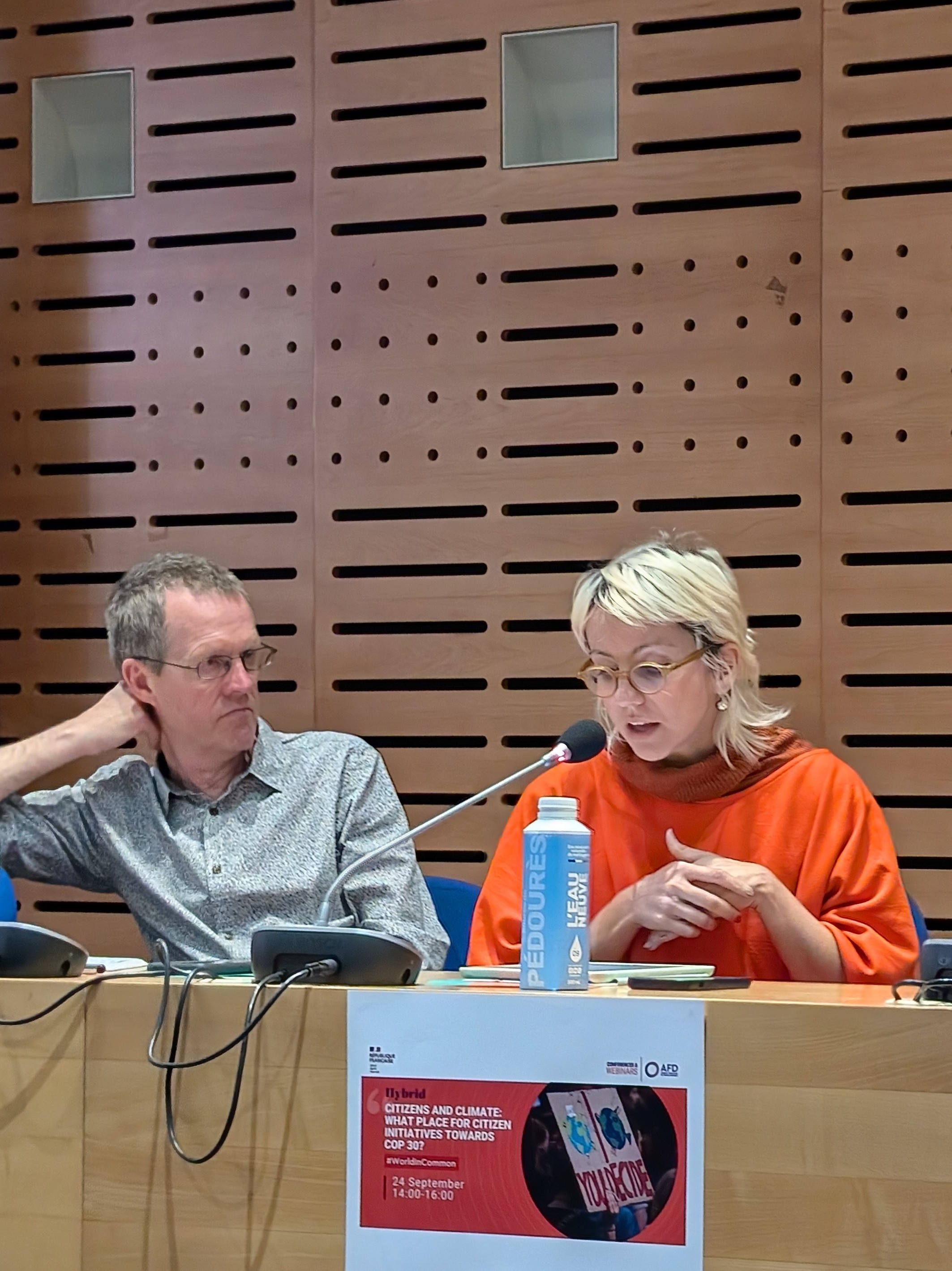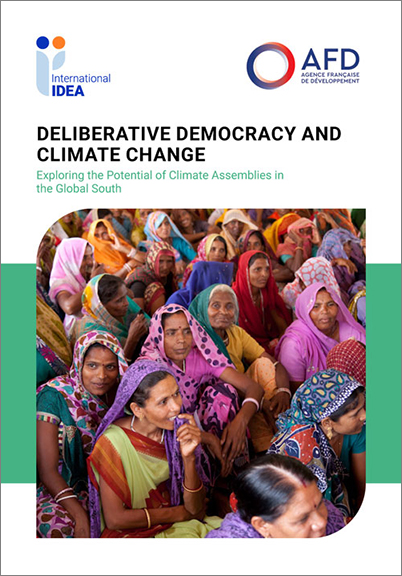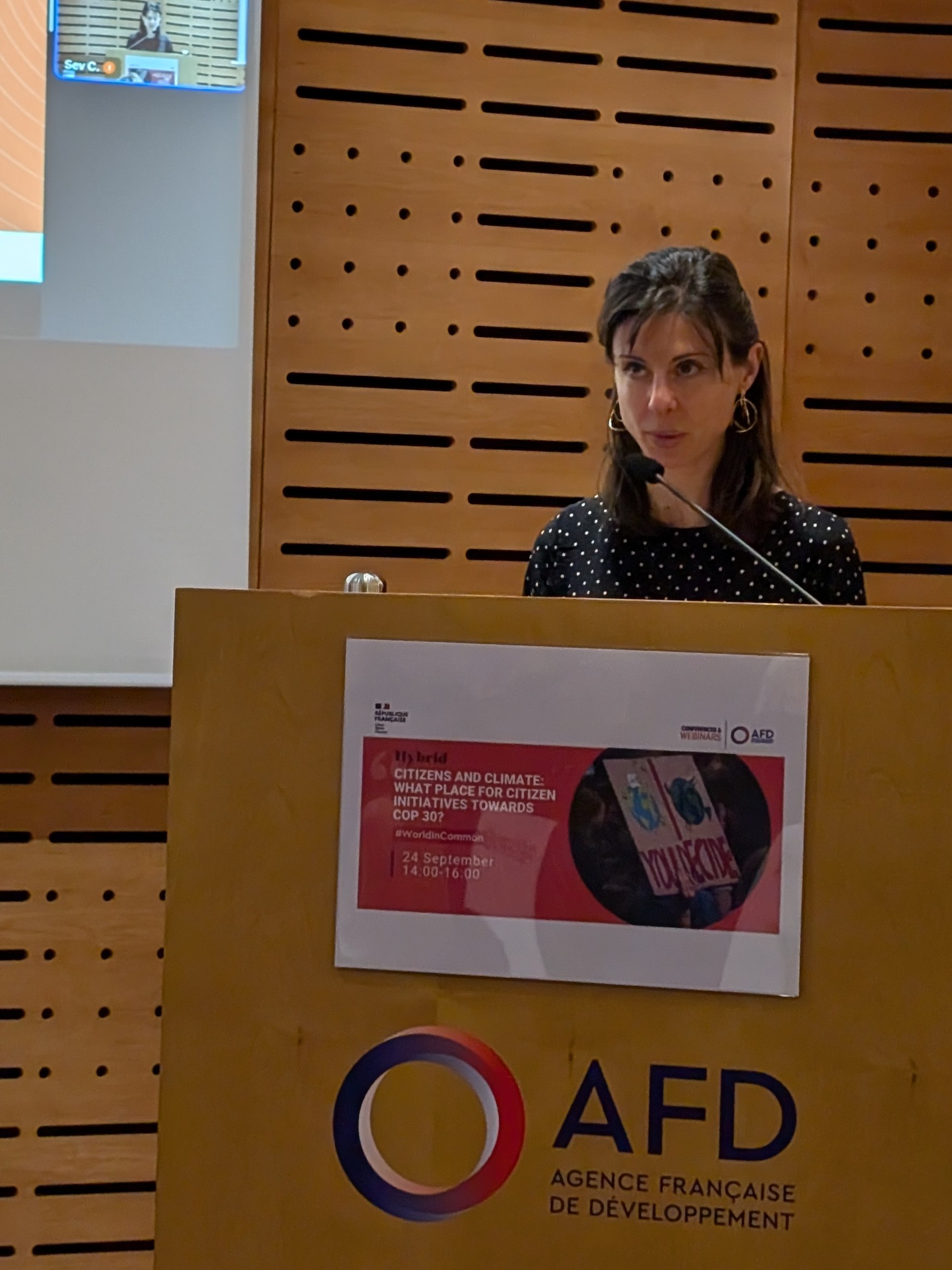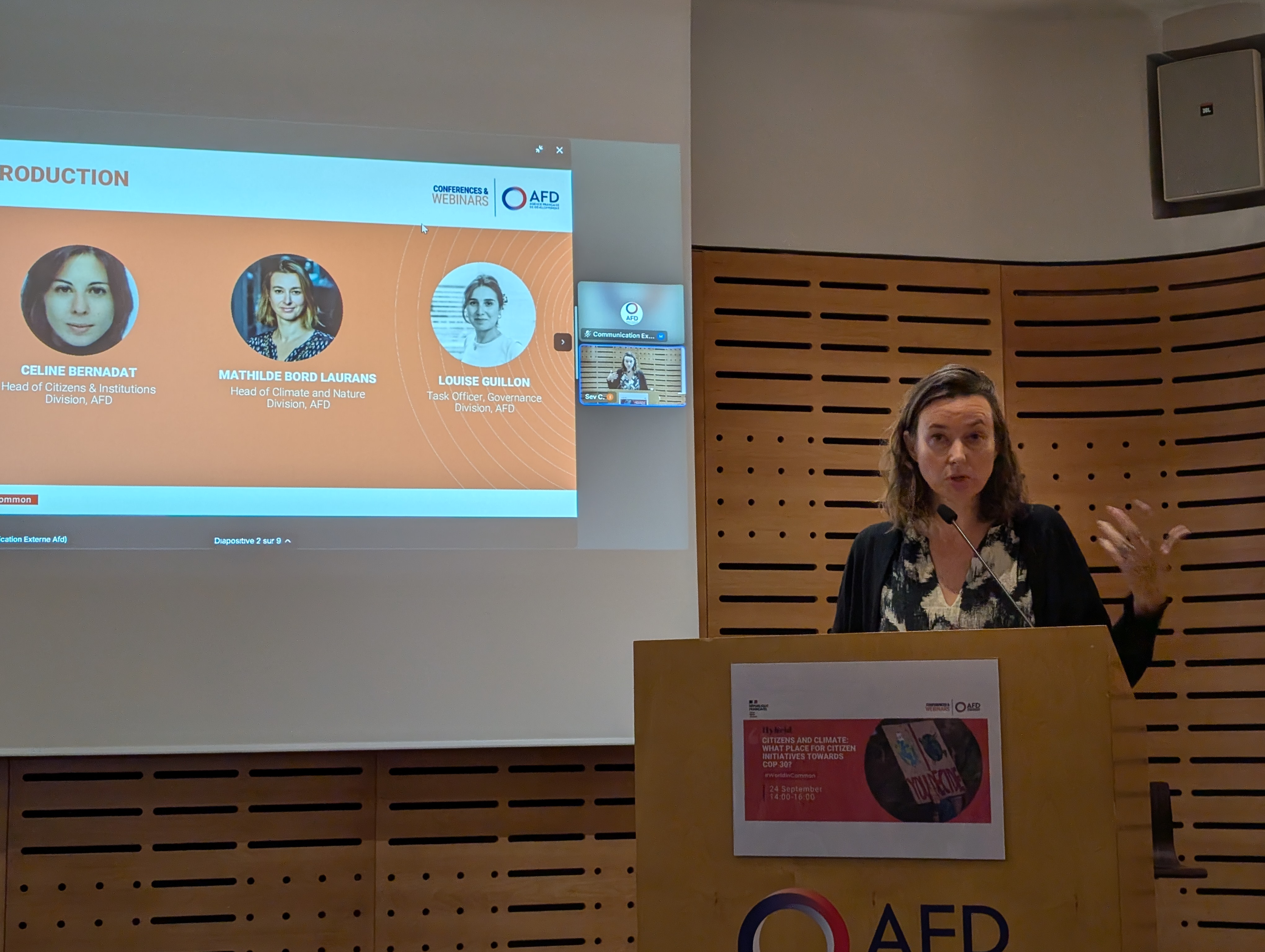What role for citizen assemblies on the road to COP 30?
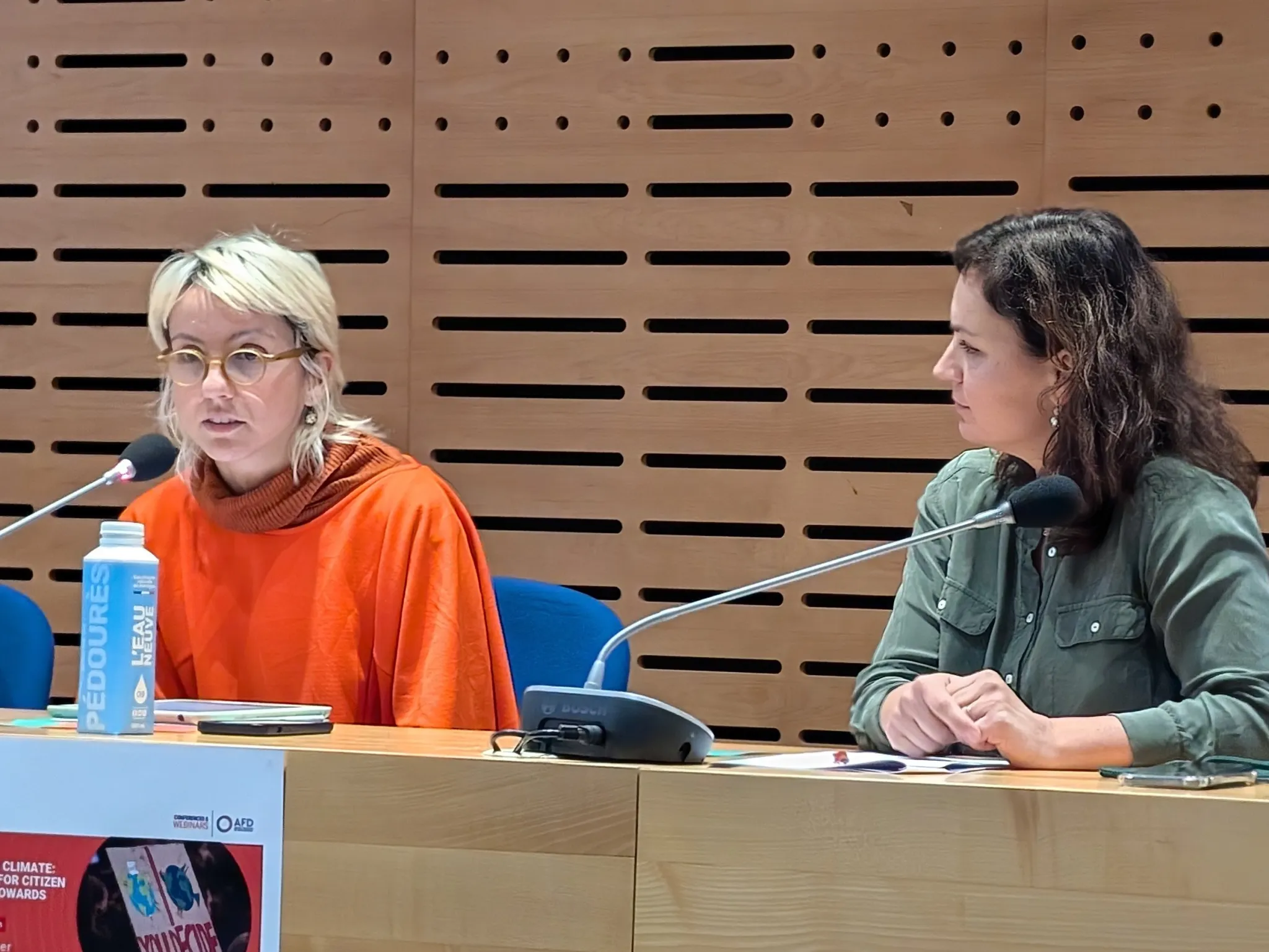
Citizen assemblies and other forms of citizen deliberation are increasingly being organized globally. They can engage a diverse and representative group of citizens to deliberate and formulate effective and socially acceptable policy responses to match the urgency of the climate crisis.
International IDEA joined the Agence Française De Développement for a dialogue on “Citizens and climate: which role for citizen initiatives heading towards COP 30?” on 24 September 2024 at the AFD Headquarters in Paris. Speakers from the AFD underlined how inclusive decision-making and citizen participation formed a central part of the agency’s SDG 16 focus in its new institutional strategy.
The findings of the International IDEA’s publication on Deliberative Democracy and Climate Change: Exploring the Potential of Climate Assemblies in the Global South (written by Nicole Curato, Graham Smith and Rebecca Willis) formed the basis for a discussion on the future role and potential of citizen assemblies and other forms of citizen participation to strengthen climate governance.
Professor Graham Smith, University of Westminster, Chair of the Knowledge Network on Climate Assemblies, Marcella Nery, Delibera Brasil, Coordinator of the recent Bujaru's Citizens' Assembly, and María Alejandra Victorino, expert in citizen participation for the Itinerant Citizen Assembly of Bogota, surveyed the challenges and the potential of citizen assemblies for raising climate ambitions globally, and zoomed in on questions about impact strategy for climate assemblies:
- What strategies and factors can help climate assemblies and their recommendations to be accepted and implemented by public administration?
- How does a climate assembly establish strong media visibility about its process and report and follow-up advocacy on its recommendations?
- How do we best set remits for climate assemblies that are useful to climate policymaking?
From a Global South perspective, critical observations on the future of climate assemblies focused on the adaptation of the design of climate assemblies to new contexts, ensuring political and social buy-in and acceptance for the process, and how to build momentum among citizens and civil society organisations to advocate the follow-up and implementation of the assembly’s recommendations.
The second panel included panellists from C40 Cities, Institute for Climate Economics and IDDRI discussing the role of other forms of citizen participation in climate governance, especially as a tool to accelerate climate action while avoiding alienating citizens.
Learn more about International IDEA’s work on climate change and democracy and the activities of Agence Française De Développement on climate change, citizen participation and democracy.
